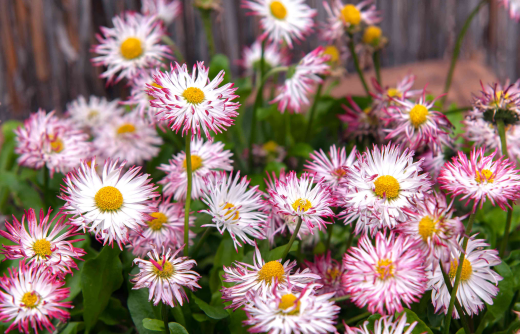
The English daisy has been known as a folk remedy for hundreds of years.
According to legend, Henry VIII ate English daisies to help with stomach problems.
It is an extraordinaly herb which has anti-inflammatory, antiseptic and a vulnerary (improves circulation) properties. It also wards off bacteria and irritants from the surface of your skin.
A modern study of wild edibles daisies used during the war in Bosnia and Herzegovina (1992–95) showed that daisies contain 34 mg of vitamin C per 100 g.
The parts that grow above ground are used as medicine. Wild daisy contains chemicals called saponins. These chemicals might help skin cells produce more collagen. People use wild daisy for bleeding, cough, bronchitis, swelling (inflammation), wounds, and many other conditions,
It is a natural nontoxic alternative for skin brightening and treats the hyper-pigmentation and sun damage. The leaves of daisy flower heal the wounds and repair your damaged skin tissues.
Drink daisy tea for the plant's health-giving and restorative properties.
USES OF DAISY
- Arthritis
- Blood purifier
- Bronchitis
- Coughs
- Diarrhoea
- Astringent (helps to stop bleeding)
- Hyperpigmentation
- Kidney problems
- Liver problems
- Skin diseases, when applied to the skin
- Sun damage
- Swelling (inflammation)
- Wounds, when applied to the skin.
